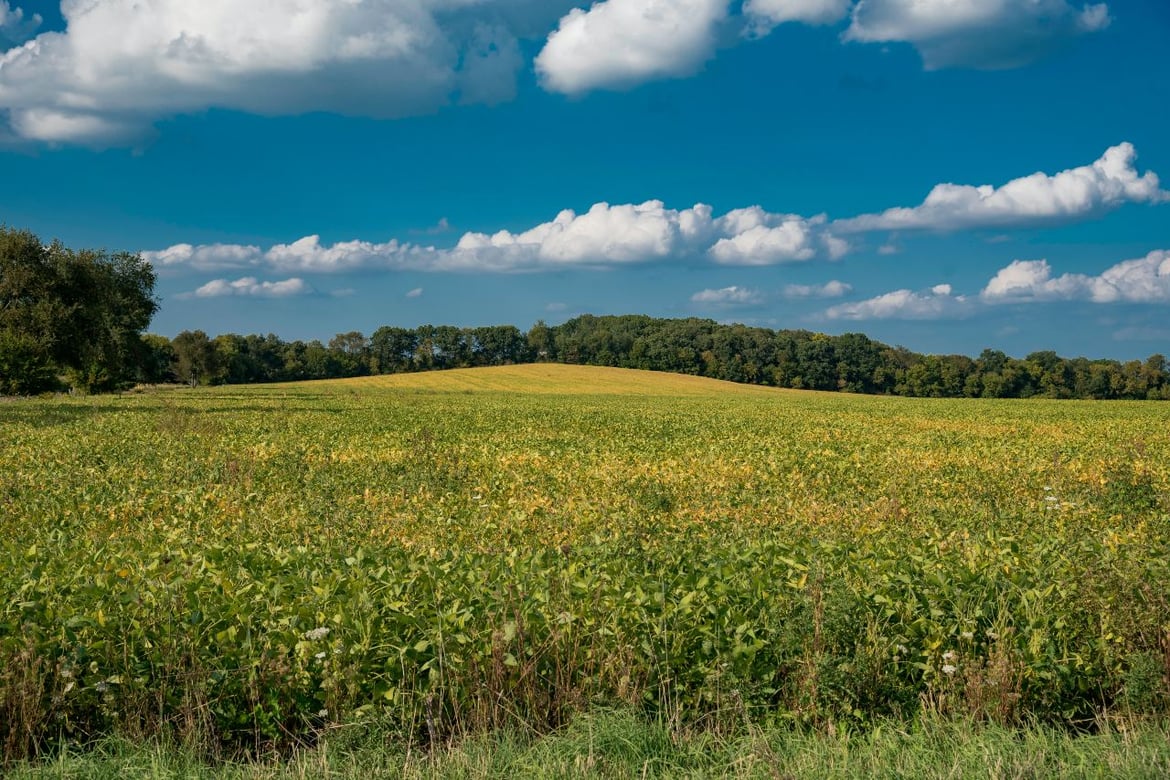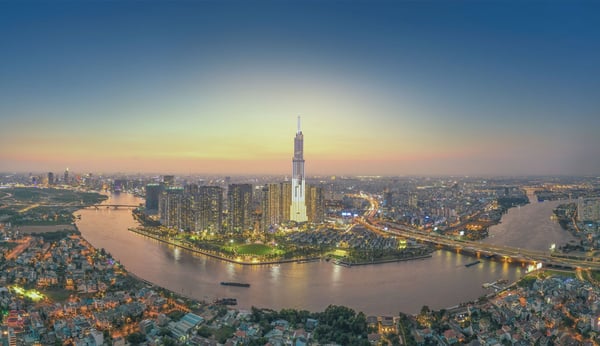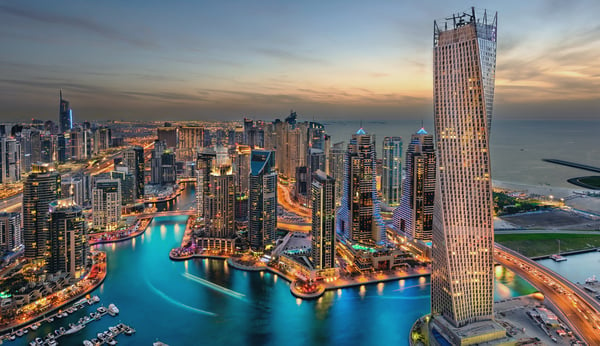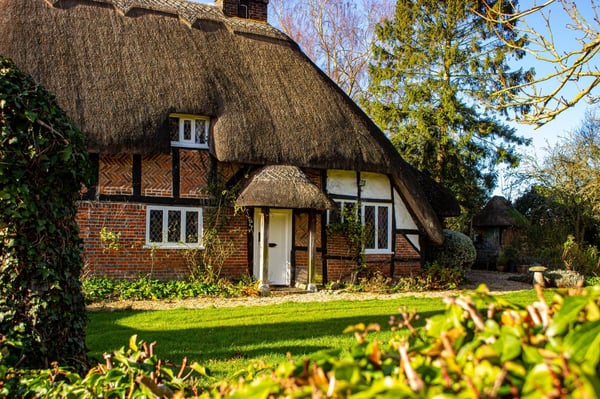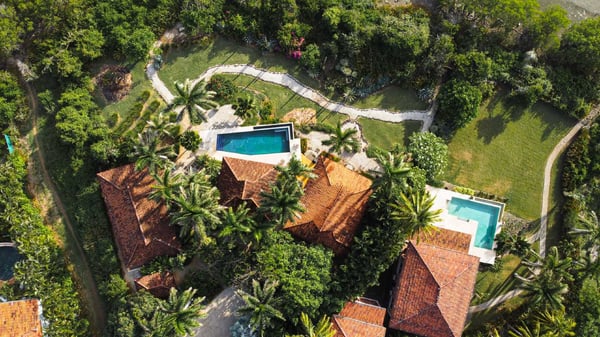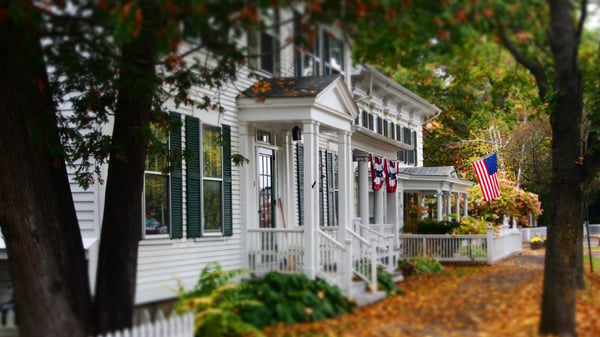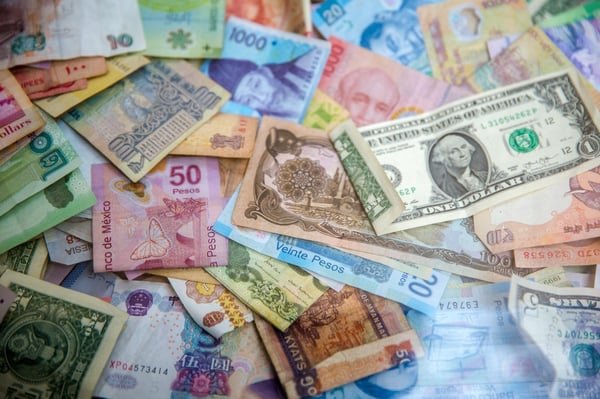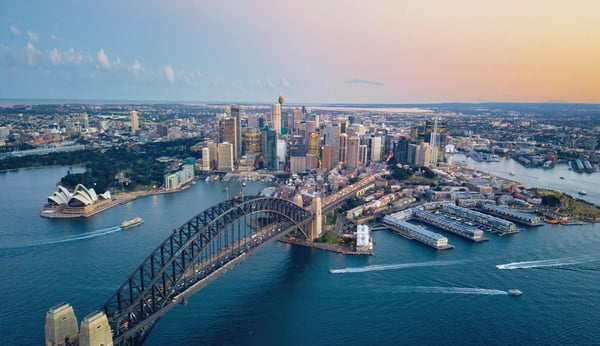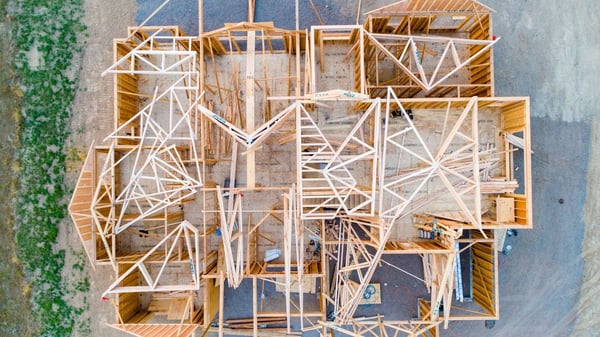Finding a foreign finca or an apartment abroad might be a dream for some, but what if you want to start with a blank canvas entirely? That means buying land for the purpose of development or cultivation. It also means navigating a separate set of rules and matching a whole new budget. It's not easy, but it's possible. Here's how to buy land overseas and where to find the top property hot spots.
Transferring money overseas
Whether you're making a series of downpayments or buying outright, the costs of buying land overseas can quickly add up. To get bank-beating rates, transfer your money to an overseas bank account with CurrencyFair. You can enjoy fixed fees and even the option to pick your target exchange rate through our unique marketplace.
Where do you find foreign land for sale?
Be warned that anyone can build a website advertising beachfront property, but you'll need a trusted partner to build your dream home. Once you've identified the region or country you want to move to, find an accredited local broker with a physical address and a strong set of testimonials. If you're thinking of a country where English isn't an official language, it's also a good idea to hire an independent local agent who can handle the paperwork and who knows the local regulations.
To get an idea of approximate land values and opportunities, you can search online with tools such as Zoopla, or browse the local listings of established global real estate chains such as ReMax, Sotheby's or Century 21. You'll also find specialist sites if you've got $20 million or so for a private island, or as little as $100 to buy an acre of protected forest or wildlife-rich habitat.
What are the restrictions on buying land overseas?
Many countries are understandably wary of the impact of foreign ownership on the domestic real estate market. For that reason, you may encounter maximum limits on the area of land you can purchase, or be barred entirely from buying. National security is also an issue. A number of countries restrict land purchases in coastal areas or within a certain distance from a border.
Plot twist! Other barriers to buying
-
-
Half the world's land surface is uninhabitable (ie. desert or mountain range).
-
The world's biggest land owners, including the British Royal Family (who technically own a sixth of the earth's land surface), the Catholic Church, and the Inuit people of Nunavut have already snagged a lot of the prime locations.
-
The most sought after property markets, including Monaco, Hong Kong (which holds the record for the most expensive commercial land sale in history) and New York City, are exorbitantly priced.
-
Nevertheless, you may be able to find land for sale in the following.
North America
There's no shortage of land in Canada, the world's second largest country, but the real estate market is shrinking for foreign investors. The introduction of new restrictions in 2023 to stop foreign investors from buying residential properties was designed to address rapidly rising real estate prices. These measures are only temporary, however, and there is no permanent residency or citizenship requirement to buy land in Canada. Each province sets its own rules and property taxes. According to 2021 statistics, the national average value was CAD $3,742 per acre, but can be as low as CAD $1,656 in Saskatchewan or as high as CAD $13,813 in Ontario.
The United States does not enforce a residency or citizenship requirement to purchase land either. If you're prepared to search away from the east or west coast, there are some interesting opportunities for homestead or ranch land in states such as New Mexico, Nevada and Texas, for example. There's also something of a rush for farmland too. Around 3.1% of US agricultural land is foreign owned, although the biggest private farm landowner is home-grown billionaire Bill Gates. As with Canada, it's important to check zoning restrictions and property taxes before committing to a purchase, and to understand that owning land does not automatically grant residency.
In the Caribbean, buying land opens up the possibility of citizenship by investment in several islands, including:
-
-
St Kitts and Nevis
-
Antigua and Barbuda
-
St Lucia
-
Grenada
-
You could be joining famous foreign landowners (past and present) in the region including Sir Richard Branson (Necker Island), Chris Blackwell (Goldeneye in Jamaica), and David Rockefeller (St. Barts).
Central and South America
Foreigners cannot buy land in Mexico that is within 31 miles of the coast or 61 miles of the border. These are restricted zones. However, you could purchase beachfront property, for example, by going through a fideicomiso or bank trust. Using a local notary is advisable, and you must register your purchase with the Ministry of Foreign Affairs.
Some of the hottest markets for land purchases among American buyers are in Central America, particularly in Panama, Costa Rica , and Belize. Again, certain restrictions apply on buying land near borders, but otherwise buyers enjoy the same property rights as citizens and may be able to get fast-tracked residency or citizenship as an investor.
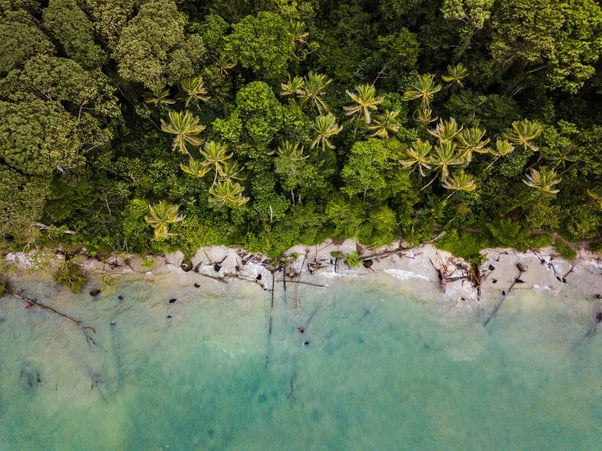
Photo by Berti Benbanaste
Africa
Home to some of the world's fastest growing economies, the continent continues to attract some significant overseas investment, but buying land is not easy for foreigners. Usually, it is available as leasehold only (e.g. Nigeria), except for (among others):
-
-
South Africa
-
Morocco
-
Ghana (although a partnership with a citizen may be required)
-
Europe
Although EU citizens enjoy freedom of movement across all 27 member states, property laws are not harmonised. That can create confusion when it comes to establishing whether you are dealing with civil law or common law, or where land titles or deeds are registered.
Some European countries — such as Bulgaria, Cyprus and Malta — offer citizenship by investment programs for buyers, but otherwise non-EU citizens will be limited to stays of 90-days per 180 days without residency.
We've covered a lot about buying property in Europe in previous posts, so follow the links below for the full details:
Buying property in the UK.
Buying property in Sweden.
Buying property in Greece.
Buying property in Italy.
Buying property in France.
Australia and New Zealand
As a result of restrictions introduced in 2015, only citizens and permanent residents can buy land in Australia. Foreigners can purchase land as long as construction is planned and completed within four years, and then only after securing permission from the Foreign Investment Review Board. The demand for land (especially farmland) in Australia has been described as “insatiable”, pushing prices per acre to record highs. At a national median of AUS $3,091 per acre, however, some buyers might see land Down Under as quite affordable.
New Zealand also took the step of restricting land sales to permanent residents in 2018, after billionaires in search of a doomsday refuge overinflated the market. If you do meet the residency requirements, you'll need to get permission from the Overseas Investment Office to buy. Exceptions apply to Australian and Singaporean citizens. For everyone else, you'll also need to get special permission to buy land classed as “sensitive” because of its location or size.
Southeast Asia
The region may be popular with overseas retirees, backpackers and digital nomads, but there are some surprisingly robust barriers to overcome if you want to own freehold land as a foreigner.
Foreigners are prohibited from owning land in the Philippines, but can purchase property through a Filipino-owned corporation.
Thailand also restricted foreign land ownership until 2022, but now allows wealthy investors to purchase land in areas including Bangkok and Pattaya where the investment is 40 million baht or above (roughly USD $1.1 million). Alternatively, you could set up a Thai company to purchase land (limited to a 49% stake) and seek permission from the Ministry of Interior.
Vietnam does not allow foreigners to own freehold land. It can only be leased from the government. The same applies in neighbouring Laos and Cambodia.
Foreigners can buy approved residential land in Malaysia as long as it has a minimum price of RM 1 million (roughly U.S. $250,000).
Important things to consider
Don't sink your fortune into foreign soil until you've taken sound legal and professional advice on the following.
Planning and zoning
One of the reasons you should always engage a local agent to assist with your land purchase is to avoid any costly misunderstandings about zoning or planning permission. You don't want to find that your dreams of developing an eco-lodge, condominium, or off-grid homestead meet the immovable reality of local red tape.
A local expert can clarify what you are allowed to do with your land, and what you may not. For example, you will be unlikely to get planning permission to build on Spanish rustico (green belt) land, and it's not uncommon to find French land sold without any permission to build attached.
Financing
There's very little chance of securing a mortgage for an overseas land purchase, either from a local broker or from a bank/lender in your own country. Even if you did, you can expect to pay higher interest rates, come up with a 40% downpayment or more, and be subject to upper age limits. That leaves cash as the most common way to purchase land overseas, and with that the risks of scams.
Taxes
Other countries will also have property taxes that are due (just like the U.S.) and you will also be liable for income taxes on any rental income (locally and possibly at home) as well as capital gains taxes and inheritance taxes following a sale. The simple solution? Hire an expert.
Residency
Unless you're buying in a country that offers a citizenship by investment visa, you will still have to organise residency permits and visas for you and your family if you want to enjoy the property as a main or secondary residence. As above, once you are spending more than 183 days in a country, you will normally be treated as a resident for tax purposes.
Buying property overseas
We're trusted by buyers around the world to facilitate fast, secure international money transfers for purchasing property, from your home bank to your overseas account. Enjoy competitive rates, fixed fees, and bank-level security.
This information is correct as of February 2023. This information is not to be relied on in making a decision with regard to an investment. We strongly recommend that you obtain independent financial advice before making any form of investment or significant financial transaction. This article is purely for general information purposes. Photo by Good Free Photos

